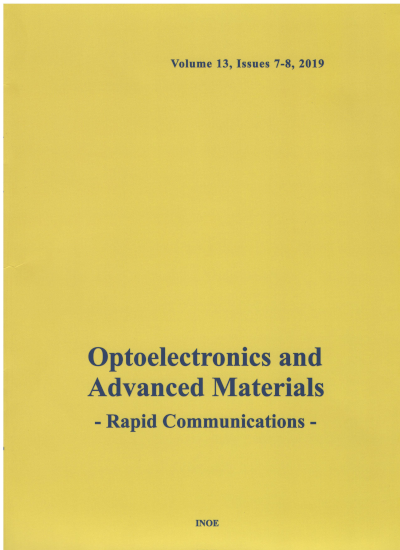Abstract
Classical viscosity predicting models for conventional-scale particle suspensions failed to predict viscosities of nanofluids.
Based on molecular dynamics simulation, the present work deliberated on the effects of absorption layer and nanoparticle
agglomeration, and presented a modified predicting model for viscosity of nanofluids. The predicting values of the modified
model for viscosities of nanofluids were well in agreement with experimental results. The diameter of nanoparticle
agglomeration and thickness of absorption layer were found to be important influencing factors for viscosities of nanofluids
that should be considered..
Keywords
Nanofluids, viscosity predicting model, Absorption layer, Nanoparticle agglomeration.
Citation
WENZHENG CUI, ZHAOJIE SHEN, JIANGUO YANG, SHAOHUA WU, A modified prediction model for viscosity of nanofluids based on molecular dynamics simulation, Optoelectronics and Advanced Materials - Rapid Communications, 9, 3-4, March-April 2015, pp.497-501 (2015).
Submitted at: Jan. 22, 2015
Accepted at: March 19, 2015
